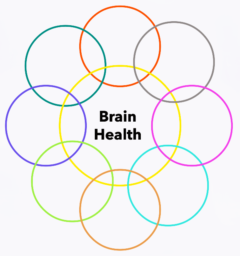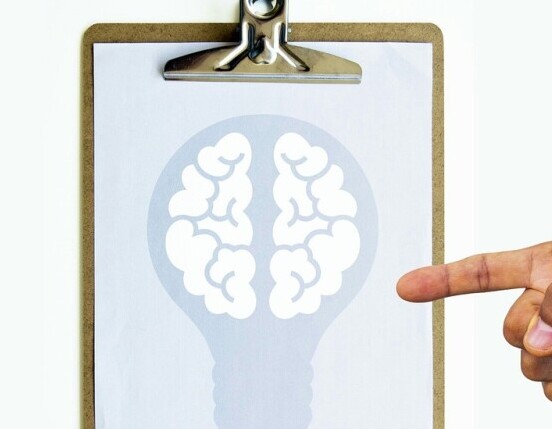
Brain health is an essential part of our overall well-being. As we age, cognitive function can decline, and it’s necessary to keep tabs on it to maintain a good quality of life. But understanding and assessing our brain health isn’t always straightforward.
Cognitive assessments play a significant role in this. They help to identify early signs of cognitive decline, allowing for timely intervention. Such assessments don’t just measure memory but also other important aspects like attention, language skills, and executive function. In short, they offer a comprehensive overview of how well our brain is working.
Key metrics for brain function generally include memory, attention, language, visuospatial skills, and executive function. Keeping an eye on these metrics can give you a clearer picture of your overall cognitive health.
When it comes to cognitive tests, several options are widely recognized and utilized. Among them, the Montreal Cognitive Assessment (MoCA) and Cogniciti’s Cognitive Health Assessment stand out. Both tests offer unique insights into cognitive function and can be taken relatively easily.
The MoCA test, for instance, is well-regarded for its accuracy and reliability. On the other hand, Cogniciti’s assessment provides a more interactive, user-friendly experience. These assessments can give you valuable insights and play a crucial role in your brain health journey.
Exploring Cognitive Health Assessments
Cognitive health assessments are powerful tools for gauging the state of your brain function. Different tests offer different strengths and focus areas. Understanding the nuances of each can help you choose the right one for your needs.
The Montreal Cognitive Assessment (MoCA) is one of the most reliable tests available. It’s designed to identify mild cognitive impairment and is often used in clinical settings. The test covers various cognitive domains, including memory, attention, language, and executive functions. Its comprehensive nature makes it a go-to choice for healthcare professionals.
Cogniciti’s Cognitive Health Assessment is another valuable option. This assessment is more user-friendly, making it accessible to a broader audience. It’s designed to be taken online, providing immediate feedback. One of its main advantages is that it breaks down complex cognitive tasks into simpler, manageable parts. This makes it easier for users to understand their brain function without feeling overwhelmed.
Interpreting these tests can be a bit tricky. While the tests provide scores, understanding what these scores mean for your day-to-day life is key. A low score in one area doesn’t necessarily indicate a serious problem, but it might be a signal to pay closer attention or consult a healthcare professional. Always consider the bigger picture, including other symptoms or changes in daily functioning.
Each cognitive assessment has its benefits and limitations. MoCA might be more suitable for those seeking a detailed clinical evaluation, while Cogniciti is ideal for those looking for a quick, accessible check-up. Understanding these differences can help you make an informed decision about which test to take.
Assessment of Lifestyle Factors
Lifestyle plays a pivotal role in brain health. Various factors, such as diet, exercise, sleep, and stress management, significantly impact cognitive function. Assessing these aspects can provide a holistic view of your brain health, complementing cognitive assessments.
The Cleveland Clinic Brain Health Index offers a comprehensive evaluation of lifestyle factors. This tool looks at nutrition, physical activity, mental engagement, sleep, and social connections. By scoring these areas, it helps to identify strengths and areas for improvement in your lifestyle. Incorporating its recommendations can lead to substantial benefits in cognitive health.
Dr. Daniel Amen’s Brain Health Assessment is another valuable resource. This assessment focuses on brain imaging, genetics, and lifestyle factors. Dr. Amen’s approach emphasizes the importance of a balanced lifestyle, encouraging practices like a healthy diet, regular exercise, and mental exercises. His assessment provides actionable insights tailored to individual needs.
The link between lifestyle and cognitive health is well-established. Regular physical activity, for example, can improve blood flow to the brain, enhancing cognitive function. A diet rich in antioxidants and healthy fats supports brain health. Quality sleep is crucial for memory consolidation and cognitive function. Managing stress through mindfulness or other techniques can reduce the risk of cognitive decline.
Adopting a brain-healthy lifestyle doesn’t mean making drastic changes overnight. Start with small, manageable steps. Incorporate more physical activity into your daily routine, choose nutrient-dense foods, prioritize good sleep hygiene, and find stress-management techniques that work for you. These changes can collectively lead to a healthier brain.
Maximizing Your Brain Health Journey
Creating a personal brain health plan can seem daunting, but it doesn’t have to be. Start by combining insights from your cognitive and lifestyle assessments. For instance, if your cognitive test indicates memory concerns and your lifestyle assessment shows poor sleep habits, focus on improving your sleep quality.
Regular monitoring and reassessment are critical to improving brain health . Your brain health changes over time, and periodic check-ups can help you track progress and make necessary adjustments. Consider scheduling routine assessments, just like you would for other health check-ups. This helps in catching any changes early, providing more time to address them.
Integrating professional advice is highly beneficial. While self-assessments provide valuable information, consulting with a healthcare provider ensures a thorough understanding of your cognitive health. They can offer personalized advice, recommend specific interventions, or even suggest further testing if needed.
There are numerous resources available for continued cognitive health education. Websites like HealthyBrains.org and Cogniciti.com offer up-to-date information and tools to help you stay informed. Books, podcasts, and support groups can also be valuable sources of information and motivation.
Taking charge of your brain health is a proactive step towards a better quality of life. Embrace this journey with a positive mindset, knowing that your efforts can make a significant difference.




